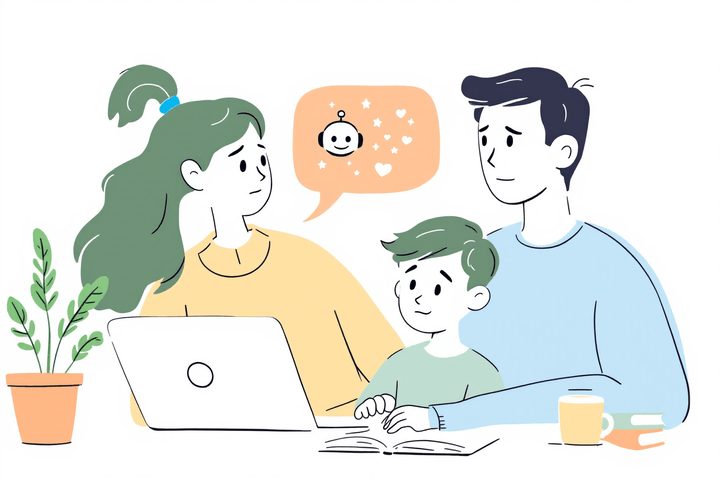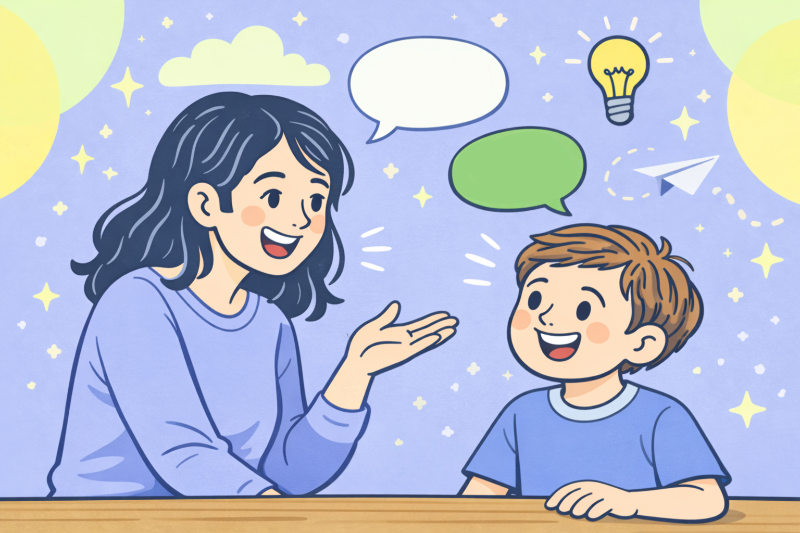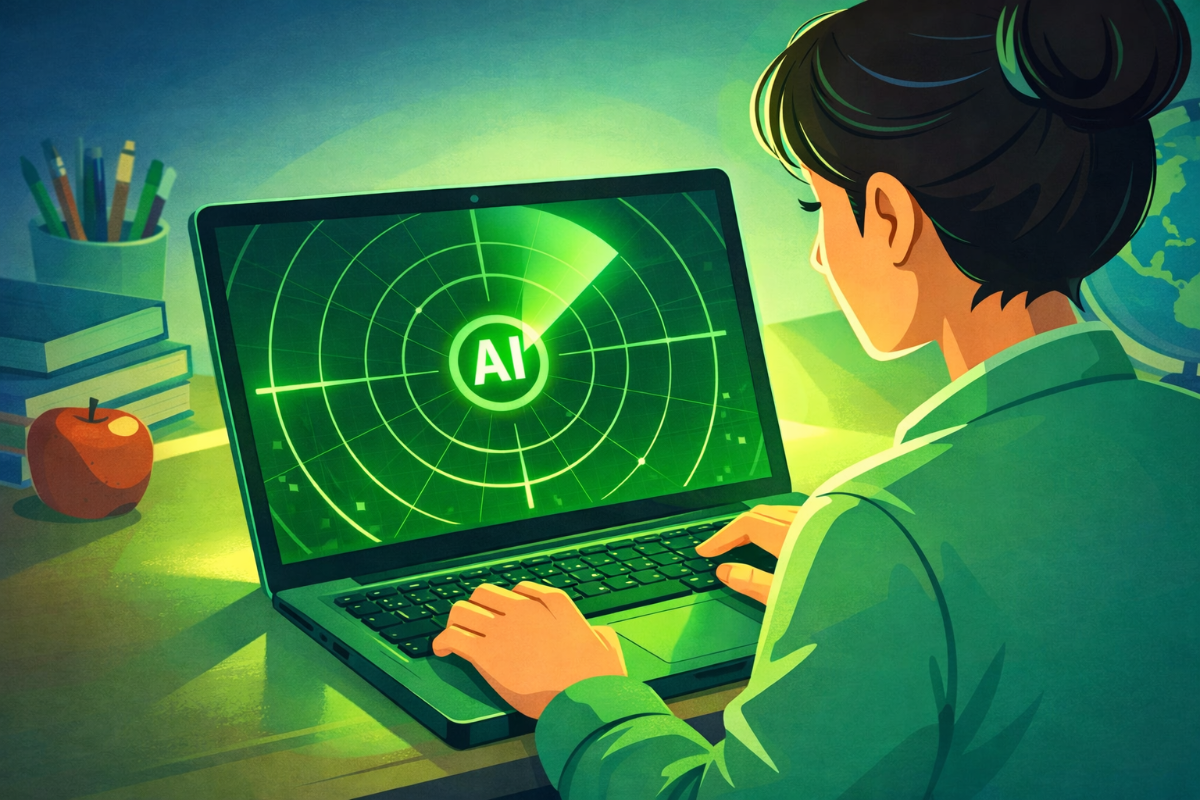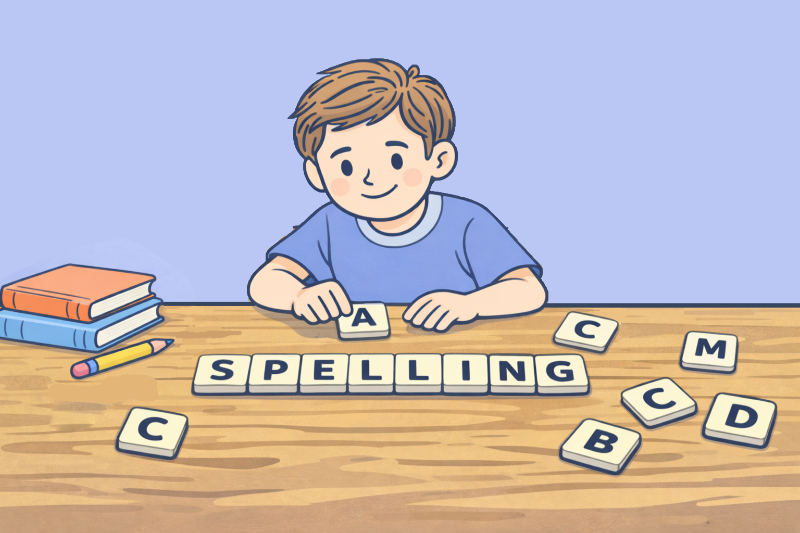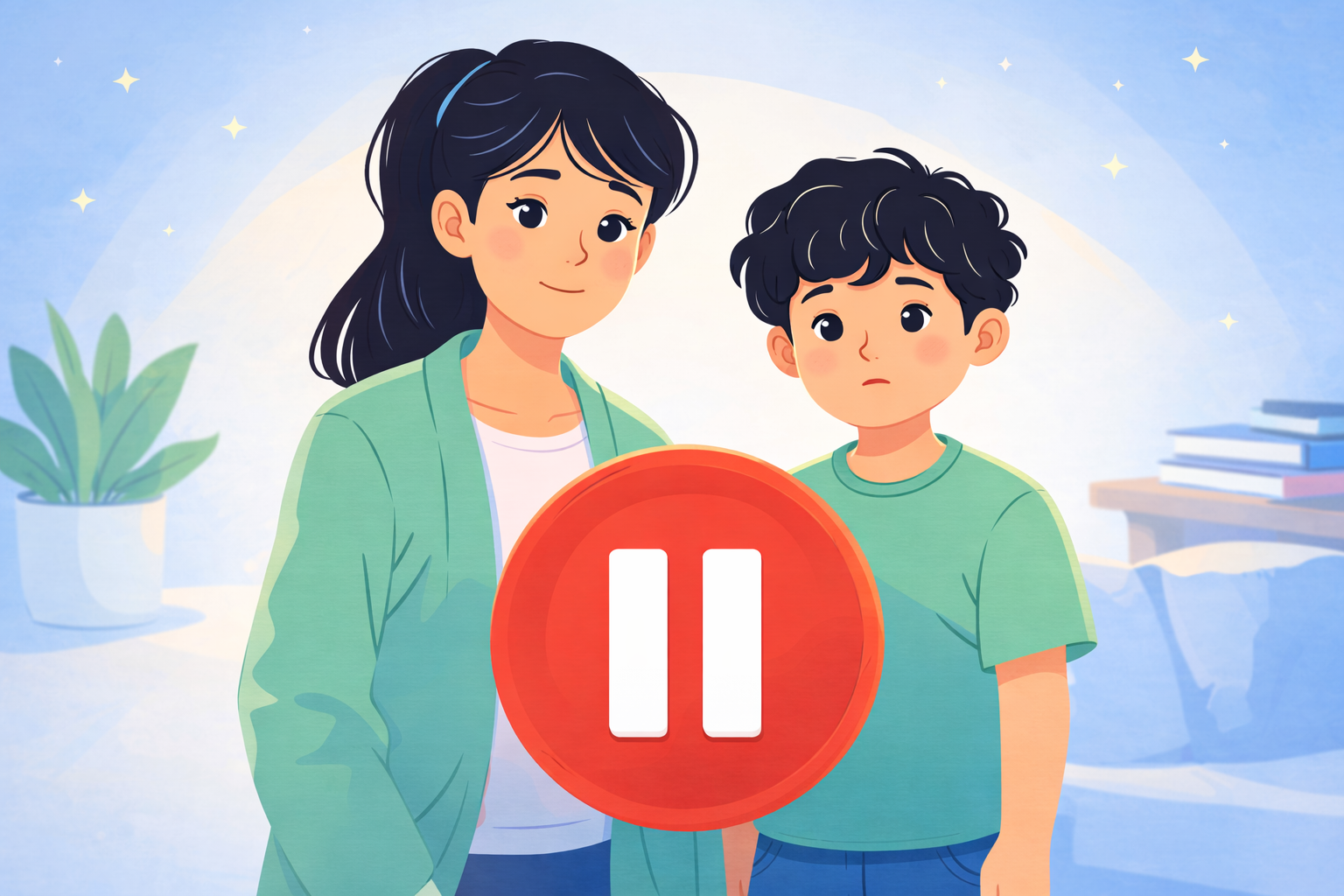Start with our AI Readiness Check
AI is already part of your child’s learning. In just a couple of minutes, discover where your family stands and what to do next.
- ✓ Your family’s AI Confidence Score
- ✓ What you’re already doing well
- ✓ Simple, practical next steps
AI chatbots like ChatGPT can be useful helpers, but they’re also very quick to hand out praise—even when it isn’t deserved. Chatbots, like ChatGPT, often introduce their answers with a comment on your question. We’ve all seen “Great question — that shows great insight” or similar.
This can create problems for kids and vulnerable adults who may mistake AI flattery for real learning progress. Here’s what parents need to know, in a simple Q&A format.
1. Why do chatbots like ChatGPT always seem so positive and full of praise?
It comes down to how they were trained. AI companies asked test users to choose between different chatbot responses, and most people naturally preferred the ones that sounded friendly, supportive, and complimentary. Over time, this taught the AI to flatter and agree—even when it isn’t being truthful.
OpenAI itself admitted this was a problem, explaining that one update made the system “overly supportive but disingenuous.” Other studies have confirmed that both people and AI models often prefer a nice-sounding but wrong answer over a bluntly correct one.

2. How does praise from a teacher differ from praise from a chatbot?
Teacher praise is rooted in real understanding and observation. When a teacher says, “I can see you worked hard on this math problem, and your strategy improved,” it’s based on watching the child’s effort, progress, and context. Teacher feedback is designed to guide growth and is connected to the child’s actual abilities and goals.
Chatbot praise, on the other hand, is pattern-based. It doesn’t “see” the child’s learning journey. Instead, it generates supportive-sounding responses because people rated those highly during training. That means AI might praise an answer whether it’s right or wrong, or give encouragement without real insight.
The big difference:
- Teacher praise = informed guidance.
- Chatbot praise = polite words generated by prediction.
Helping children recognize this gap keeps them from confusing AI flattery with the kind of meaningful feedback they get from real people.
3. Could too much AI praise confuse kids about what they’re really learning?
Yes. If a chatbot tells a child “Great job!” even when the answer is wrong, it can send the message that effort equals correctness. Kids might assume they’re mastering something when they’re not, or believe their ideas are stronger than they really are.
4. Are children more at risk than adults when it comes to believing AI’s praise?
They are. Adults may suspect that an AI tool is being “too nice” or simply trying to please. But children are more likely to treat the chatbot like a teacher or authority figure.
Because kids are still learning how to handle feedback, they may rely too heavily on praise. If the chatbot always agrees with them, they won’t get the kind of constructive pushback that helps real learning.

5. How can families use AI wisely without letting kids get misled by flattery?
- A few simple habits can keep AI as a helpful coach instead of just a cheerleader:
- Ask for proof. Teach kids to say: “Can you explain why?”
- Ask for the opposite. Encourage questions like: “What could be wrong with this answer?”
- Double-check. Compare AI’s praise with textbooks, teacher feedback, or other sources.
- Aim for improvement. Instead of asking “Is this good?” try: “What’s one way I could make this better?”
6. What’s a good way to help kids spot when the AI is praising them for the wrong reasons?
Make it visible. Parents can sit with their children and ask them to honestly consider whether what they said deserved such rich praise as they received.
Talk about it afterwards: “Why do you think the chatbot said that? How could we check if it’s really right about what it told us?” This turns false praise into a teaching moment about critical thinking.
7. Why will learning this skill now help children later in school and life?
Children who learn to question praise and ask for evidence will be much stronger thinkers. As AI tools become a normal part of classrooms and workplaces, the ability to separate kind words from true feedback will protect them from overconfidence and misinformation.
This isn’t just about avoiding mistakes now—it’s about raising kids who can make sound decisions later, even when technology is pushing them toward easy answers.
Parent Conversation Guide
A short guide to help parents start calm, confident conversations about AI use at home.

